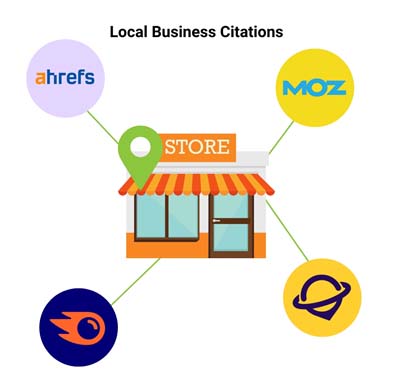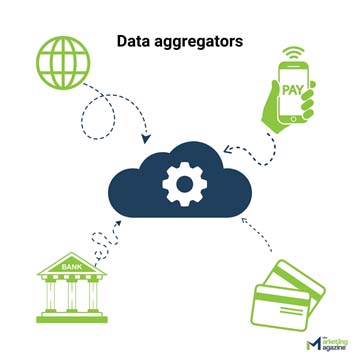Introduction
Local links play a crucial role in boosting a business’s visibility and reputation within its community. Citations and data aggregators help customers easily find essential information like phone numbers and addresses, while local awards build trust and credibility. However, acquiring impactful local links goes beyond just SEO tactics—it’s about genuinely engaging with the community.
Successful local businesses prioritise community involvement over SEO strategies. For instance, supporting local charities or sponsoring sports teams not only benefits the community but also earns the business recognition and respect. By focusing on building genuine connections with neighbours and contributing positively to the local area, businesses can achieve lasting success in local SEO. Ultimately, businesses that combine strong community involvement with effective SEO tactics are poised to stand out and thrive in their local market.
Citations
Local business citations, also known as online directories, are an essential component of local SEO strategies. These directories serve as digital phone books, listing businesses’ basic information such as name, address, and phone number (NAP). The SEO rationale behind citations lies in establishing consistency across various online platforms, reinforcing a local business’s legitimacy and credibility.
Maintaining NAP consistency across multiple directories aids search engines in accurately verifying business information, enhancing their ability to provide relevant results to users. Google’s Knowledge Graph, for instance, relies on directory data to validate and disseminate business details across its platforms.

Moreover, citations contribute to improving a business’s online visibility and accessibility. By listing on directories like Whitepages, Garmin, Siri, Bing, Yahoo, and travel websites such as Airbnb and TripAdvisor, businesses increase their chances of appearing in local search results, particularly for location-based queries.
Google, as a dominant search engine, prioritizes accuracy and reliability in search results. Therefore, by ensuring that their business information is listed consistently and accurately across various online directories, businesses align with Google’s goal of providing users with trustworthy information.
Additionally, citations play a crucial role in local search engine rankings. Search algorithms consider the quantity and quality of citations when determining a business’s relevance and authority within a specific geographic area. Consistent NAP information across reputable directories strengthens a business’s local SEO efforts, leading to higher visibility and better rankings in local search results.
In summary, local business citations are fundamental for local SEO success, as they contribute to NAP consistency, enhance online visibility, and align with search engines’ objectives of providing accurate and credible information to users. By leveraging online directories effectively, businesses can establish a robust digital presence and improve their chances of being discovered by local customers searching for products or services in their area.
Data aggregators
Imagine you’re running a business, and you want to make sure people can find you easily online. One way to do that is by getting your business listed in online directories, kind of like being in a phone book for the internet. But doing this manually can take a lot of time and effort.

Luckily, there are companies called data aggregators that can do this work for you. These companies, like Data Axle, Neustar, and Foursquare, offer a service where they submit your business information to a bunch of online directories all at once. It’s like sending out a bunch of invitations to different parties without having to write each one by hand.
Each of these companies has its own list of directories they submit to, but sometimes they overlap. For example, both Data Axle and Neustar might submit your business to a directory called Whitepages.
The exact number of backlinks, or listings, you get from each aggregator isn’t always clear, but it’s usually between 25 to over 100 for each one. And since some directories show up on more than one aggregator’s list, you might end up with some duplicates.
Overall, using data aggregators can save you time and hassle while still getting your business listed in lots of places online, making it easier for potential customers to find you.
Community engagement
In the realm of local SEO, community engagement plays a pivotal role in shaping a business’s online presence and reputation. Just as Ebenezer Scrooge’s miserly behavior garnered him a negative reputation in “A Christmas Carol,” businesses that fail to engage with their local communities risk being perceived in a similarly unfavorable light. By actively participating in local events, sponsoring community initiatives, offering scholarships, supporting charities, and volunteering, organizations demonstrate goodwill and commitment to their communities.
These community engagement efforts not only contribute to a positive brand image but also generate opportunities for building backlinks. When businesses invest in their local communities, they naturally attract attention and engagement, sparking conversations and interactions both offline and online. Local sponsorships, events, and charitable endeavors often result in mentions and links from local news outlets, community websites, and social media platforms.
To effectively leverage community engagement for backlink building, businesses should align their initiatives with their core values and mission. For instance, a law firm emphasizing clear communication might host a seminar on citizens’ rights regarding zoning proposals. This event could garner coverage in the local newspaper, resulting in a valuable backlink to the firm’s website.
Ultimately, community engagement serves as a powerful tool for organic backlink growth and SEO enhancement. By investing in their communities, businesses not only strengthen their ties with local stakeholders but also bolster their online visibility and authority. Embracing community-centric initiatives aligns businesses with the values and needs of their target audiences, fostering long-term relationships and sustainable SEO growth.
National and local awards
Winning awards, whether nationally or locally, goes beyond mere recognition—it serves as a powerful trust signal for customers. For instance, imagine a local HVAC company proudly displaying its numerous awards and certifications in its website footer. When customers see these accolades, they feel more confident in choosing that business for their needs. Awards signify credibility and excellence, making businesses stand out in a crowded marketplace.
To start on the path to receiving awards, businesses can explore various opportunities tailored to their industry and local area. Organizations like the Better Business Bureau offer national accreditation, enhancing credibility on a broader scale. Local chambers of commerce also provide resources and award opportunities for businesses looking to connect with their communities.
Once a suitable award opportunity is identified, businesses can strategize on how to best position themselves for success. This may involve applying for awards directly or embarking on initiatives aligned with award criteria. For example, if community involvement is a key aspect of the award, businesses can initiate projects that benefit their local neighborhoods.
Winning awards not only boosts a business’s reputation but also has tangible SEO benefits. Search engines like Google consider awards as indicators of expertise, authority, and trustworthiness. In fact, Google’s Search Quality Rater Guidelines highlight the importance of researching a business’s trustworthiness through the awards it has received.
Local content
Local content initiatives, such as gathering data on energy consumption or conducting interviews with industry experts, serve as valuable resources for both consumers and media outlets. By publishing such content on their websites and sharing it with local news sources, businesses can drive conversations and attract backlinks and brand mentions.
The SEO impact of these initiatives lies in their ability to enhance Expertise, Authoritativeness, and Trustworthiness (E-A-T), ultimately improving organic rankings. As the content gains traction and generates discussion within the community, the organic growth and visibility of the organization naturally follow suit. Through strategic local content promotion, businesses can establish themselves as leaders in their field and foster organic growth in their local communities.
How to earn Local links?
Obtaining local links is not just about hunting for opportunities—it’s about nurturing relationships and aligning with community values. Think of it like tending to a garden: you plant seeds, nurture them, and watch them grow. Here’s how to cultivate local links effectively:
- Establish a Citation Baseline: Start by ensuring your business is listed accurately in online directories and local listings. This serves as a foundation for your local SEO efforts.
- Reflect on Company Values: Take some time to reflect on your organization’s core values. What matters most to your business? This introspection will guide your approach to local link building.
- Channel Values into Strategy: Align your link building strategy with your company values. For instance, if community involvement is important to you, focus on initiatives that benefit your local area.
- Execute Strategy and Achieve Links: Put your plan into action by reaching out to local organizations, participating in community events, and providing valuable resources. As you engage with the community, opportunities for local links will naturally arise.
- Review and Repeat: Regularly assess your efforts to see what’s working and what’s not. Adapt your strategy based on feedback and continue nurturing relationships within the community.
Targeting local links based on community needs presents an opportunity to surpass local competitors who may be ranking by default. By integrating your backlink strategy with your values, your organization demonstrates genuine care for the community—the essence of local link building.
Caring isn’t just a buzzword—it’s the foundation of meaningful local backlinks. Your organization isn’t simply seeking links for the sake of SEO; it’s committed to providing valuable information, giving back to the community, and delivering reliable services. This genuine care resonates with both your audience and potential link partners.
While the idea of pursuing local links may seem overwhelming, it’s ultimately about reflection and authenticity. If your organization has already defined its values, you’re halfway there. By staying true to those values and making a positive impact in your community, local links will naturally follow. So, roll up your sleeves, tend to your garden of relationships, and watch your local link network flourish.
Conclusion
In conclusion, the four main types of local links—citations, community involvement, local publications, and local partnerships—offer valuable opportunities for businesses to enhance their local SEO and visibility. By focusing on building relationships and aligning with community values, businesses can earn these links organically.
Citations serve as the foundation, ensuring accurate listings across online directories. Community involvement initiatives, such as sponsoring events or volunteering, demonstrate genuine care and engagement within the local area. Securing coverage in local publications establishes credibility and authority, while forming partnerships with other local businesses fosters mutual support and collaboration.
To earn these local links effectively, businesses must prioritize authenticity, relevance, and value. By nurturing relationships, providing valuable resources, and actively participating in community initiatives, businesses can not only strengthen their online presence but also contribute positively to their local communities. Ultimately, by integrating these strategies into their overall marketing efforts, businesses can achieve sustainable growth and success in their local markets.